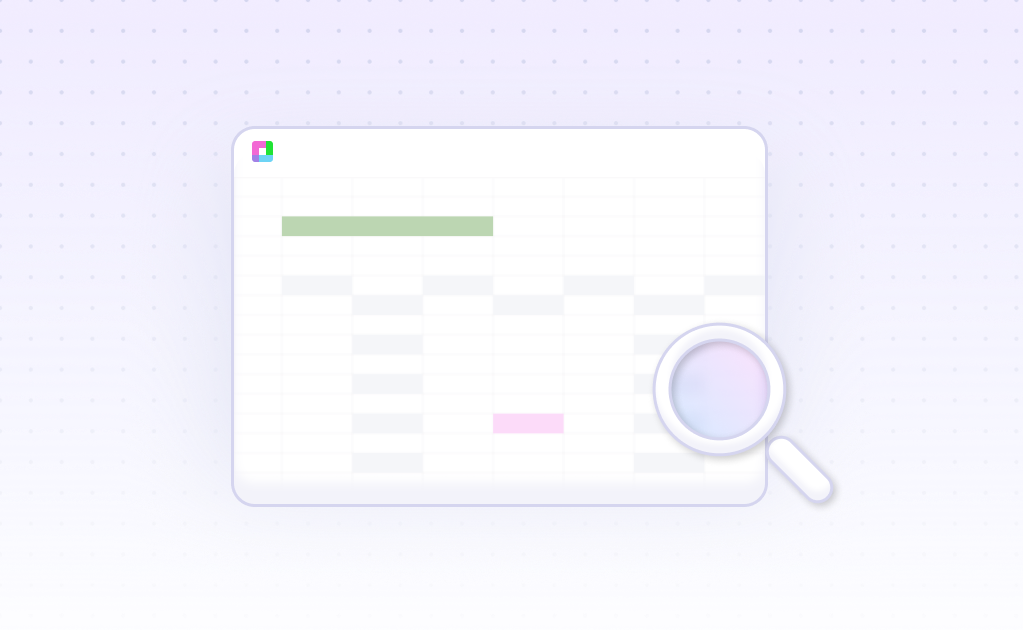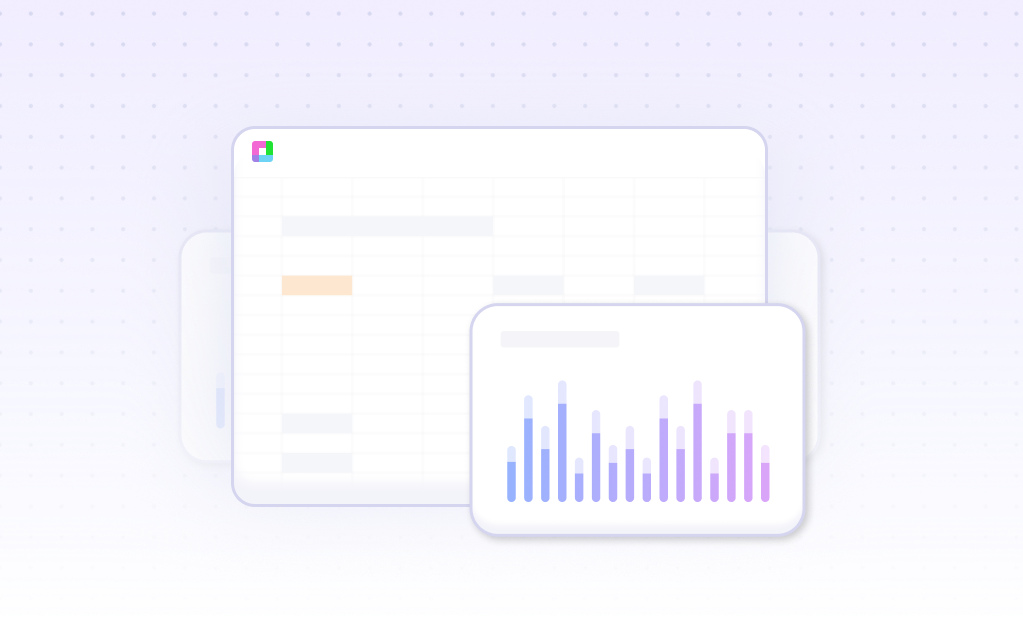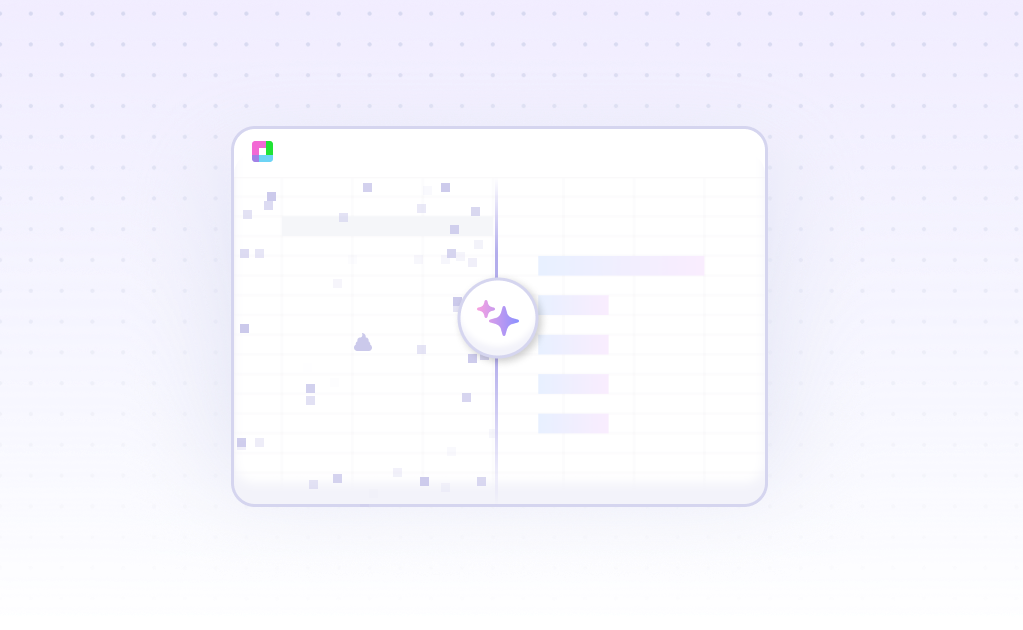
Introduction
Financial geographic analysis helps businesses understand market trends, opportunities, and risks across different locations. Excel provides basic geographic analysis capabilities through data types that recognize locations and financial information. Users can convert text to geography data types and extract location-specific data for analysis.
Sourcetable offers an AI-powered alternative that combines spreadsheet functionality with advanced analytics. This AI-native platform syncs with over 100 business applications and databases, handling multi-gigabit files with near real-time updates. Its AI copilot assists with spreadsheet work, database analysis, and SQL queries, making complex financial geographic analysis accessible to analysts, operators, and finance professionals.
Discover how Sourcetable enhances financial geographic analysis with features like cloud computing, 3D plotting, and advanced data transformations at sourcetable.com/signup.
Why Sourcetable is Superior for Financial Geographic Analysis
Critical financial analysis requires powerful tools to study how public finance operates as a technology of power and impacts social missions. While Excel was revolutionary for finance, it has become obsolete for complex analytical needs. Sourcetable combines Excel's functionality with AI capabilities, making it ideal for geographic financial analysis.
Enhanced Data Processing
Sourcetable's built-in ChatGPT integration enables natural language processing of geographic and financial data. Unlike Excel, it can automatically classify locations, clean data, and extract key information from any text string. This automation streamlines the analysis of public finance across different regions.
Collaboration and Social Impact
Sourcetable facilitates collaboration between academics and non-academics studying poverty and inequality. Its ability to analyze location data and transform complex information into clear visualizations makes it valuable for political and policy debates. Excel lacks these collaborative features and requires multiple add-ons for similar functionality.
Automated Analysis
Traditional spreadsheets require manual processing of geographic financial data. Sourcetable automates these tasks by allowing users to ask questions directly and receive instant analysis. This functionality is particularly useful for studying how finance logistics affect public institutions across different locations.
Benefits of Financial Geographic Analysis with AI-Powered Spreadsheets
Geographic Information Systems (GIS) adds critical spatial intelligence to financial analysis, enabling visualization and insights that numerical data alone cannot provide. Financial institutions gain competitive advantages through location-based decision making and spatial data analysis.
Why Use GIS for Financial Analysis
GIS provides valuable insights by analyzing financial data in spatial terms, helping institutions make more informed decisions based on geographic factors. This spatial perspective reveals patterns and relationships that traditional financial analysis methods miss.
Advantages of Using Sourcetable vs Excel
While Excel remains widely used by over a billion people, Sourcetable's AI-powered capabilities dramatically accelerate financial analysis tasks. The platform seamlessly integrates with Excel and Google Sheets while making complex functions, charting, and data cleaning significantly faster.
Sourcetable's AI chatbot and automated workflows allow finance teams to focus on strategic decisions rather than routine tasks. The platform improves forecasting accuracy through predictive analytics while providing real-time performance insights from complex data sources.
By combining GIS capabilities with AI-powered analysis, finance teams can make better data-driven decisions while streamlining their analytical workflows. This integration of spatial and numerical analysis creates a more comprehensive understanding of financial data.
Financial Geographic Analysis Examples with AI-Powered Spreadsheets
Sourcetable's AI-powered financial analytics capabilities enhance geographic analysis through automated data processing and visualization. The platform combines financial reporting features with geospatial analysis to reveal spatial patterns and trends in financial data.
Financial Reporting with Geographic Context
Users can analyze general ledger accounts and compare budget entries with geographic dimensions. The system generates visualizations including cash flow charts, income statements, and balance sheet reports that incorporate spatial data parameters.
Spatial Pattern Analysis
Sourcetable's geospatial analysis capabilities make spatial and temporal trends visually apparent. The platform enables enhanced segmentation through geographic parameters while supporting real-world financial modeling.
AI-Enhanced Financial Analysis
The AI-powered system automates complex tasks, uncovers deeper insights, and improves forecasting accuracy. It identifies trends in large datasets, predicts future values, and suggests appropriate chart types for geographic financial data visualization.
Financial Geographic Analysis Use Cases for Sourcetable
GDP Growth Analysis |
Create choropleth maps to visualize regional GDP growth patterns. Use Sourcetable's AI-powered tools to automate data cleaning and generate real-time insights for strategic planning. |
Market Penetration Mapping |
Analyze market penetration across geographical regions using 2D modeling. Leverage automated workflows to process regional sales data and identify growth opportunities through color-gradient visualization. |
Revenue Category Distribution |
Map product category revenue distribution across regions. Combine Sourcetable's geospatial capabilities with AI-driven data categorization to discover geographical dependencies in product performance. |
Regional Poverty Analysis |
Generate multilevel choropleth maps showing poverty rates across territories. Use AI-enhanced data processing to automate report generation and provide deeper insights into socioeconomic patterns. |
Frequently Asked Questions
What is financial geographic analysis?
Financial geographic analysis is a rapidly growing subdiscipline of economic geography that examines how finance impacts the economy and society. It emerged in the UK in the late 1980s and focuses particularly on financialization, especially since the 2008 global financial crisis. The field has a pluralist theoretical approach with four distinct intellectual traditions.
How does financial geographic structure impact businesses?
Financial geographic structure, measured by the density of bank branches around firms, has a significant impact on business innovation. A higher density of bank branches leads to improved firm innovation quality, including increased invention patents and green technology patents. The relationship between financial geographic structure and innovation is moderated by economic policy uncertainty.
How can AI-powered spreadsheet tools enhance financial geographic analysis?
AI-powered spreadsheet tools automate complex tasks, uncover deeper insights, and improve the accuracy of financial forecasting. They can spot trends in large datasets, predict future values, suggest appropriate chart types, and fill in missing data, enabling users to make more informed data-driven decisions.
Conclusion
Excel's financial geographic analysis capabilities enable users to analyze stocks and geographic data through built-in data types. Excel recognizes ticker symbols, company names, fund names, countries, provinces, territories, and cities. Users can convert text to stock or geography data types and extract relevant data points.
Sourcetable offers an AI-powered alternative that streamlines financial geographic analysis. It automates formula generation, including SUM and VLOOKUP, while providing advanced data analysis through SQL and Python integration. The platform's AI capabilities extend to automated chart generation, data cleaning, and voice-driven interactions.
For comprehensive financial analysis, Sourcetable integrates with over 100 platforms and databases, supporting tasks from balance sheet analysis to technical equity research. Experience AI-powered financial geographic analysis by signing up at sourcetable.com/signup.
Recommended Analysis Guides
Connect your most-used data sources and tools to Sourcetable for seamless analysis.
Frequently Asked Questions
If your question is not covered here, you can contact our team.
Contact Us




